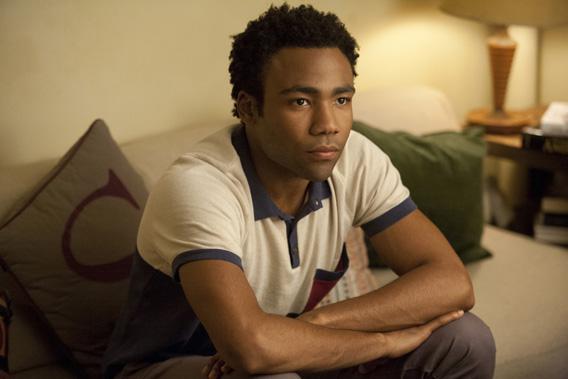In interviews, Lena Dunham is unfailingly polite—even when criticized. When Terry Gross questioned her about her show’s failure to have any prominent characters of color in its first season, Dunham said she was excited that Girls had prompted “a dialogue about topics that I feel are important,” that she wanted to avoid “classic network tokenism,” and that the series would definitely be “more diverse” in its second season. When Emily Nussbaum asked her about the charge of “nepotism,” Dunham said, “I had plenty of counterarguments, but it’s not elegant to share them.”
Those are impeccably civil, I-hear-what-you’re-saying responses. Then there’s what Dunham & Co. have actually done in the first two episodes of Season 2, much of which has a here’s-what-I-think-of-your-criticism feel to it. (Spoiler alert: I think that’s a good thing.) It’s entirely possible she and her fellow writers and producers decided to do these things without a single thought for what anyone else has said about the show. But I wonder.
She cast her mother in a speaking role.
The accusation of “nepotism” is one of the silliest that’s been made against Girls. (In fairness, people levying that charge may not know what nepotism is.) Yes, Dunham’s parents are both successful artists who live in Manhattan, and that surely gave Dunham a leg-up in life in a variety of different ways, helping her, ultimately, to where she is today. But HBO did not green-light Girls because Laurie Simmons’ gallery shows have been reviewed in the New York Times.
For the most recent episode, Dunham cast Simmons, her mom—who is not a professional actor—in a large speaking part, as if to say, “You think I got this show because of my mom? Well that’s funny, because I happen to have my mom right here. And I’m giving her work—not the other way around.”
She has taken her clothes off, a lot.
Lena Dunham is an attractive 26-year-old woman; that she is frequently naked on pay cable should probably not, in 2013, be a big deal. But it is. Just read through the comments below the first post in this TV Club, and count how many of them are about Dunham’s nude body. You will probably lose track. Many people continue to say that she takes off her clothes too much on the show. So how does she respond? By doing it even more, if that’s possible. And as long as people are getting weirdly upset by it, that’s probably the right response.
It also seems to be having an effect, by the way. In a recent New York Magazine profile, Mike White, creator (and co-star) of the excellent Enlightened, also on HBO, says that he was inspired to strip down for his show by watching Girls. “I didn’t want to be in my underwear,” he says, “but after seeing Lena Dunham’s nooks and crannies, I had to put it out there.”
She gave herself a black boyfriend, and then wrote him off the show.
The casting of Donald Glover as Sandy, Williamsburg’s young black Republican, seemed at first like a possible capitulation to critics (though producer Jenni Konner has said they were “in talks” with Glover well before such criticism arrived). And who knows, perhaps his first lines—“You wanted this and now you’re fucking getting it”—were not at all addressed to critics who demanded that Dunham cast actors of color.
But consider Sandy and Hanna’s break-up scene. She asks if he’s read the personal essay she gave him. He demurs, then confesses that he read the essay and didn’t like it. Nothing really happened in it, he says—it was like reading “all the nonsense that goes through your brain when you’re just trying to kill time … It wasn’t for me.” Hannah pretends she’s perfectly happy to hear these things, then steers the conversation to an obviously delicate topic: their divergent political views and the incredible rates of incarceration among black men. Sandy sarcastically thanks her for enlightening him about the plight of minorities. Seconds later, their relationship is history.
Hannah Horvath, character, and Lena Dunham, writer, have grown farther apart as the series has progressed. But the former is still the latter’s alter ego, and Hannah’s personal essays will always have a meta-fictional connection to Girls itself. When Sandy says that Hannah should not try to inform him about the difficulties faced by black men—just after the two discuss whether her essays are “for” him—Girls seems to be saying that this show, like Hannah herself, is a foolish place to turn to for enlightenment on that subject.
Glover was great in the role. And I suspect we have seen the last of his character.
